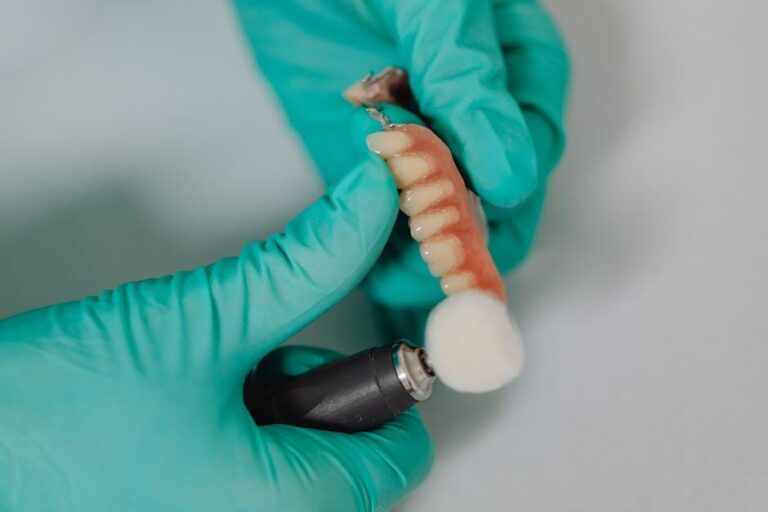
7 Things Your Dentist Wishes You Knew Before Choosing Implants or Dentures
Deciding between dental implants and dentures is a significant step toward restoring your smile and oral health. Both options have their merits and limitations, but your dentist has insights that go beyond what you might find in brochures or basic online searches. Choosing the right tooth replacement solution can impact not only your appearance but your overall wellbeing, comfort, and budget.
In this article, based on expert advice and clinical experience, we share the 7 essential things your dentist wishes you knew before choosing implants or dentures. This comprehensive guide will help you make an informed choice and set realistic expectations for your dental restoration journey.
1. Implants Are More Than Just Permanent Teeth
When dentists recommend dental implants, they aren’t just talking about an artificial tooth. Implants act as substitutes for the entire tooth root, anchoring themselves securely into your jawbone. This provides significant advantages:
- Bone preservation: Implants stimulate the jawbone, preventing bone loss that typically follows tooth extraction.
- Natural look and feel: They feel and function like your natural teeth, allowing for normal chewing and speaking.
- Longevity: With proper care, implants can last decades, often a lifetime.
However, implants require sufficient jawbone volume and healthy gums to be successful. Your dentist will evaluate whether you are a good candidate.
2. Dentures Are Cost-Effective But Come with Lifestyle Adjustments
Dentures remain a popular choice, especially for patients seeking an affordable solution or those who may not qualify for implants immediately. Dentures can replace multiple missing teeth or full arches but involve compromises:
- Comfort and fit: Dentures rest on your gums and may require adjustments to avoid soreness or slippage.
- Maintenance: Daily cleaning routines are essential to prevent infections and odors.
- Speech and eating: Some foods may be more difficult to chew, and speech might initially be affected.
Modern dentures have advanced in appearance and comfort, but the lifestyle changes must be acknowledged.
3. Not Everyone Is an Ideal Candidate for Implants
Although implants are often seen as the “gold standard” for tooth replacement, certain medical conditions and habits can disqualify or delay treatment. Your dentist will assess:
- Bone density: Insufficient jawbone may require grafting procedures before implants.
- Chronic illnesses: Conditions like uncontrolled diabetes or autoimmune disorders may interfere with healing.
- Smoking: Tobacco significantly reduces implant success rates due to poor blood flow and healing.
Discuss your full health history honestly—your dentist wants the best outcome for you.
4. The Timeline Differs Drastically Between Implants and Dentures
If you’re eager to restore your smile quickly, it’s important to know how treatment timelines vary:
- Dental implants: Usually require multiple appointments over several months to allow for healing and integration of the implant with the bone.
- Dentures: Can often be made and fitted within a few weeks.
Your dentist will guide you through what to expect based on your treatment plan and oral health condition.
5. Cost Differences Aren’t Always What They Seem
The initial price tag for dentures is typically lower than implant treatment. However, consider the long-term picture:
- Implants may require a higher upfront investment but tend to last much longer, reducing replacement and repair costs.
- Dentures may need periodic adjustments, relining, and eventual replacement, adding to ongoing expenses.
- Insurance coverage varies greatly depending on procedures and policies, so check what your plan offers.
Budget is important, but long-term value is key.
6. Daily Care and Maintenance Are Crucial for Both
Whether you choose implants or dentures, maintaining excellent oral hygiene dramatically affects success rates and comfort:
- Implants: Require regular brushing, flossing specially around the implant area, and professional check-ups to prevent peri-implantitis (implant gum disease).
- Dentures: Need to be cleaned daily with non-abrasive solutions and stored properly overnight to maintain their shape and prevent bacterial buildup.
Neglecting oral care can lead to complications and early failure of your dental restoration.
7. Your Dentist Can Customize Solutions to Fit Your Lifestyle and Needs
Modern dentistry offers a spectrum of options from traditional dentures, implant-supported dentures, single-tooth implants, to hybrid prosthetics. Your dentist wishes you knew that:
- Every patient is unique; there is rarely a one-size-fits-all solution.
- Combining implants with dentures for stabilization is a popular choice offering comfort and improved function.
- Open communication about your lifestyle, preferences, and budget can help your dentist design the perfect treatment plan.
Quick Comparison: Implants vs Dentures
| Aspect | Dental Implants | Dentures |
|---|---|---|
| Longevity | 15-30+ years with care | 5-10 years, then replacement |
| Comfort | Feels like natural teeth | May cause irritation or slippage |
| Bone Support | Prevents bone loss | No bone stimulation |
| Cost | Higher upfront cost | More affordable initially |
| Maintenance | Similar to natural teeth | Daily removal and cleaning needed |
Additional Practical Tips for Tooth Replacement
Consult Early and Thoroughly
Schedule a consultation with a reputable dentist or prosthodontist early to understand your options and receive personalized recommendations based on your oral health.
Consider Future Oral Health
Think about how your choice will affect your jawbone, remaining natural teeth, and overall function as you age.
Be Realistic About Expectations
Implants and dentures can restore a confident smile but require patience during treatment and ongoing care.
Conclusion: Making the Right Choice for Your Smile
Whether you lean toward dental implants or dentures, understanding the nuances outlined here can save you from surprises and unsatisfactory outcomes. The 7 things your dentist wishes you knew emphasize that the best choice is highly individual and should prioritize long-term health, comfort, and function over just upfront cost or convenience.
Trust your dental professional’s advice, ask questions about every aspect of your treatment, and commit to diligent dental care. With the right information and guidance, you’ll enjoy a restored smile that looks natural and feels great for years to come.
Explore your options, ask your dentist these key questions, and invest in the smile you deserve.


